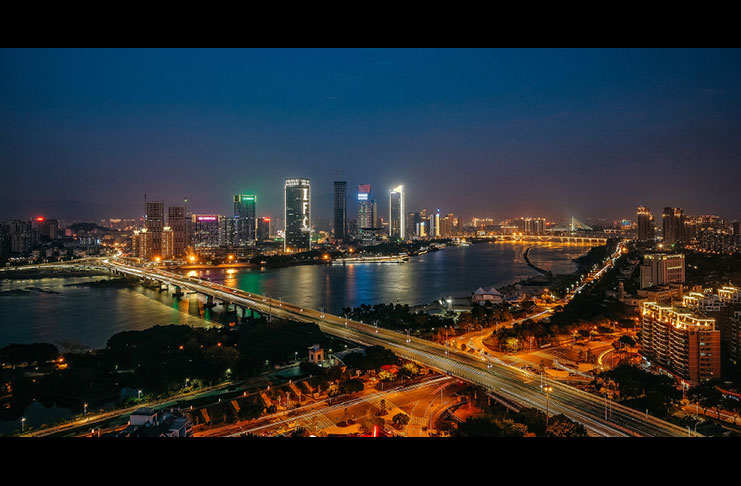AT the University of Guyana, I once encountered a Linguistics lecturer who described Guyana as a “naming society” – due to our preoccupation with the linguistic phenomenon of “naming.” This is particularly reflected in the way the Guyanese people often come up with nicknames for their family and friends. Truly, is there any Guyanese who does not have a nickname – one that is often reflective of some physical characteristic or attitude? Popular examples include Tall-man, Smallie, Fine-girl, Putagee, etc. However, sometimes more unusual examples tend to emerge once in a while: Bora (the father) and Lil Bora (the son), Big Mouth, Uncle Beggar, etc.
Sure, we laugh at nicknames sometimes, but there’s no doubt that nicknames reflect our desire with naming things. This desire is further reflected in the interesting way gravel roads, streets, and pathways, particularly in rural areas are assigned names of certain families living in the areas, by those same families (Singh Street, Persaud Road, etc.). Names are important. Names are literature, and names contain many facets that are representative of history and culture. Therefore, I was very concerned when, last week, I came across News Room Guyana article that was floating around on social media, claiming that the Mayor of Georgetown has plans of allowing a street in the capital to be named after the Chinese city of Fuzhou.
Renaming a local street after a Chinese city is problematic for several reasons, but first, let us observe the pros of such an act. Several people have pointed out that the relationship between China and Guyana can be further cemented/validated through the act of renaming the street after the city. However, this position raises several other important questions, one of which, as articulated by someone on Facebook goes: Is China naming one of their streets after somewhere in Guyana? If not, then the idea of assigning names here becomes one not only of establishing/confirming relationships, but also representing the unevenness and imbalance of such relationships. Of course, there is a longer conversation to be had here about political relationships and the way they manifest themselves in physical, material things, despite politics being built on philosophic thought, the need to do good, and other abstract ideals. But now I am in danger of moving into more sociological/political/philosophical realms when my area of expertise is literature.

Names are literature. Each street in Guyana carries a name that gives honour or pays homage to some person or aspect of our Guyanese past. Quamina Street, for example, is named after the famous Guyanese revolutionary. Therefore, it is possible to read the names of our streets as if one were reading a history book – each street name carrying with it many years of history, many characters, many events, many conflicts. Naming streets after icons is something that needs to be continued because there are far too many Guyanese pioneers who have yet to be recognised for their major contributions to Guyana. A few writers who are more than deserving of the remembrance of having a street named after them include Edgar Mittelholzer, Walter Rodney, Sir Wilson Harris, Mahadai Das. There are many other writers who would fall into this category, and there are many other fields, besides writing, to choose from. What is truly interesting is the fact that despite overlooking Guyanese icons in favour of a Chinese city, it is doubtful whether the Mayor and City Council is actually doing anything else to honour the many Guyanese personas who deserve such honours.
The thing about names is that they often stick. They come to signify things in later years that they had not signified when they were first given. In literature, we have Charlotte Brontë who published her Jane Eyre under the male pseudonym of Currer Bell. With new waves of feminism, we were able to recognise that Brontë’s change of name was reflective of the patriarchal nature of the times she lived in and was one of the ways to ensure she got published.
Fifty years from now, what exactly will we look back on Fuzhou Road (if it happens) and say? Will we view it as a mistake – as an opportunity to honour our own that was denied? Will we view it as something necessary that was done after much thinking, deliberation and discussion? Will it be seen as a scar that mars the face of Georgetown – a mistake in our history made in haste to satisfy a bargain that did not bring as many good things as was projected? On the flipside, if we name a street after a Guyanese icon – someone whose ideas and work has helped to shape this country into the best version of itself we could have been at the time that person existed – in 50 years, will be there be a plethora of possible scenarios to choose from or will there be just one single reaction: one of pride, justice, honour, and fulfillment?
Names are important. They should not be given after much thought and much consideration. Names are forever. Names, for the most part, remain unchanged, but the way people react to them is ever-shifting and ever-changing.



.jpg)








